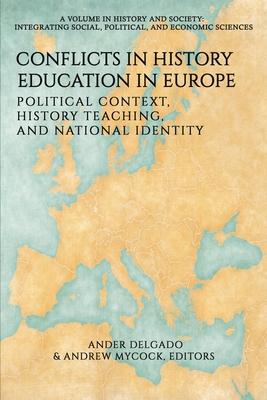The existence in a given society of different visions about the nation or the various responses proposed to face the social challenges existing in it (immigration, independence nationalisms...) can turn the teaching of history into a debated and controversial topic. Logically, depending on the specific political context of each country, this debate can acquire different developments and characteristics. The school is not an institution isolated from its socio-political context. In fact, both areas constantly interact. Therefore, this book proposes an approach to this topic that tries to connect the specific political context of different countries with the debates about education and history teaching from 1990 until the present. It deals with the extent to which the social and political context affects the history teaching practice developed in the classrooms through the decisions made on the official curricula and textbooks. Emphasizing this connection between both aspects is one of the strengths of this book. That is the reason why this book proposes an approach to that reality from diverse points of view and show the different materializations observed in this area in the studied cases. The chapters of this volume allow us to verify this heterogeneous reality and help enrich our knowledge on this broad and interesting topic.
